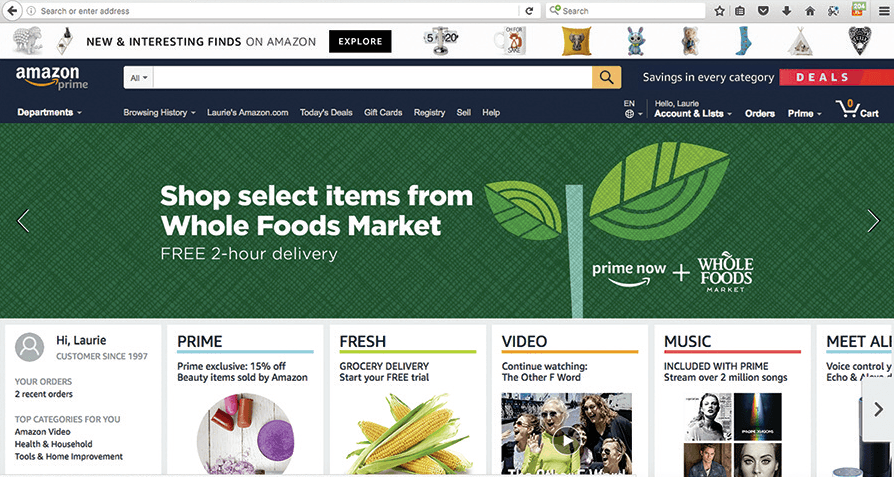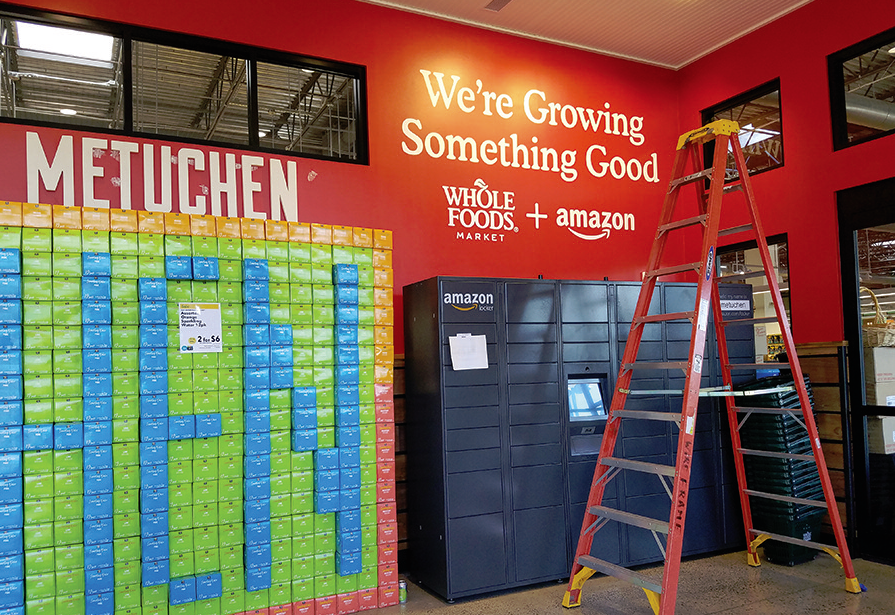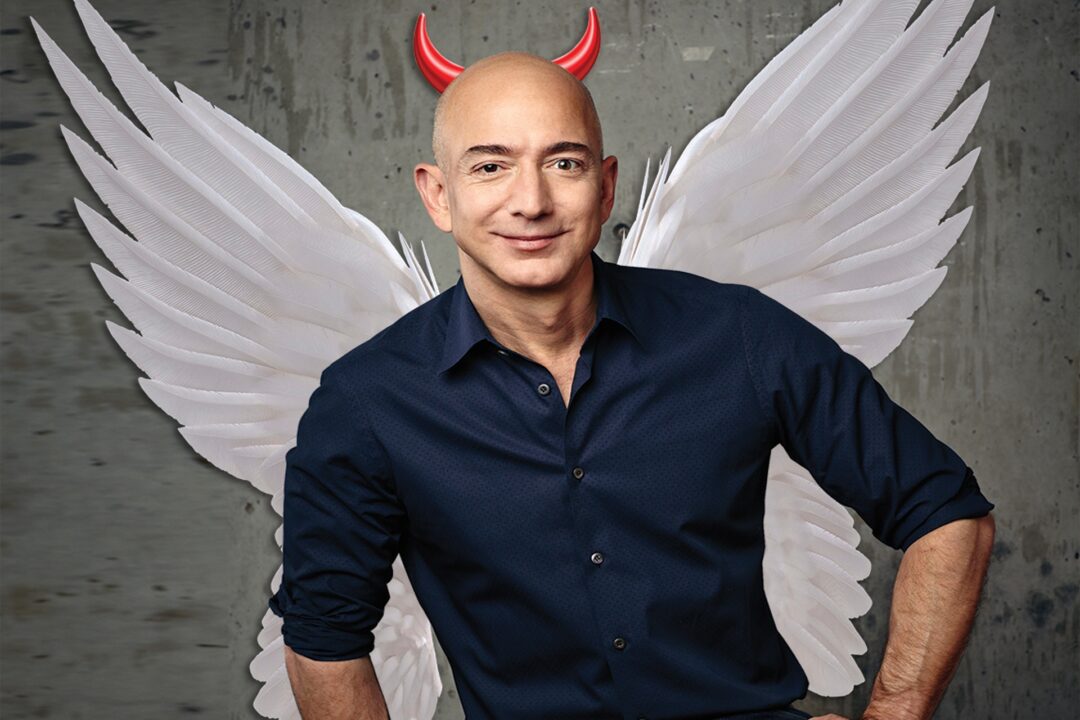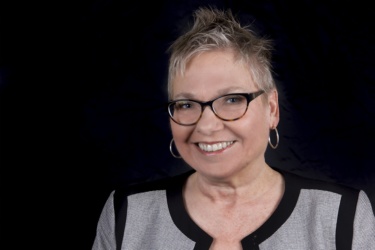Ask yourself what you were doing when you heard the renowned disruptor Amazon was rescuing John Mackey’s struggling Whole Foods Market from the clutches of activist investors and we’re sure you’ll remember. Whether the story was overhyped by the media or not, creates opportunity for an independent renaissance or not, June 16, 2017 was a watershed moment for the industry and the topic remains fresh five months later. Every week seems to bring another development.
Take Nov. 2, for example. “America’s Healthiest Supermarket” held an Amazon-style job fair, designed to hire 6,000 people on the spot in one day. In that same week, Amazon lowered its 15% fee for non-perishable grocery products costing $15 or less to 8% to encourage a broader range in its own marketplace.
Whole Foods private label products are also proving popular on Amazon.com, with $1.6 million in “365 Everyday Value” items sold in the first month, according to One Click Retail. It’s also testing meal kits and two-hour delivery. While Amazon Fresh service is being pulled back in some cities, that doesn’t mean it’s going away. Lots of integration work is going on behind the scenes that’s just preparation for what’s to come.
“There will be a lot of work together between Prime Now, AmazonFresh, Whole Foods, Whole Foods products on the Amazon site, Amazon Lockers at the Whole Foods stores … a lot of integration, a lot of touch points and a lot of working together as we go forward,” CFO Brian Olsavsky said on Amazon’s third quarter earnings call with analysts.
The force behind this relentless drive is Jeffrey P. Bezos, whose assets now total about $90 billion, making him the richest man in the world. The founder, chairman and CEO of Amazon.com, who gets “weak-kneed” when he sees a “customer-obsessed company,” catapulted past Bill Gates when the third-quarter earnings report showed 52 cents earnings per share far outpacing analyst expectations of 3 cents per share and sent share prices up 7%. The Whole Foods acquisition ranked first on a list of 37 highlights cited in a press release for the quarterly results.
Significantly, Amazon Web Services, the cloud business powering sites like Netflix, Hulu, airbnb and Zillow, increased its sales by another 42% year-over-year. It’s the engine that allows Amazon to keep investing.
The Bezos EffectJust as he disrupted the publishing industry by launching an online-only bookstore in 1995, Amazon under Bezos rewrites the rules of any industry it touches. With no legacy to protect, the Everything Store is liberated to reinvent how it approaches any business. Now this father of four who does the dishes after dinner and runs a frugal operation but isn’t afraid to invest and lose money, has drawn renewed attention to natural products and brick-and-mortar retailing.
Bezos’ Amazon is propelling everyone in the industry to up their game a lot faster and innovate to get better. That’s why he’s our Person of the Year.
This doesn’t mean he’s popular. When asked to give one word or phrase to describe Bezos, WholeFoods Magazine Merchandising Editor Jay Jacobowitz comes back with this: All-seeing, all-knowing? Megalomaniac? God complex?
Jacobowitz, as well as Frank Lampe, VP communications and industry relations at the United Natural Products Alliance and Corinne Shindelar, CEO of the Independent Natural Food Retailers Association, fall into the camp that Amazon buying Whole Foods Market is the best opportunity for independents to re-establish their strength in 20 years.
“In our mind, this almost takes Whole Foods out of the equation,” says Shindelar. “Who knows what [it] will look like under Amazon’s direction?”
“Bezos basically wants to own the whole economy,” Wired editor-in-chief Nick Thompson said on CBS News after the deal’s announcement. “In 10 years, he’ll own everything there is … It’s also possible he won’t be good [at the food business].”
Bezos sees no boundaries and is fearless. “You have to be of the mindset that you accept blind alleys, but I’ll tell you, the broad avenues are way more fun,” he once told an interviewer.
Bezos has his hands all over food and thinks big. On Nov. 3, Plenty, an indoor farming startup he backs (through Bezos Expeditions) opened a 100,000-square-foot facility in the Seattle region. This past summer, Amazon reps met with cattle ranchers who specialize in organic and grass-fed beef, setting off speculation it will employ its logistical expertise and financial resources to build a grass-fed supply chain from scratch.

“It’s get out of Dodge time. [Amazon] will dominate food within the next two years,” predicted CNBC’s Jim Cramer. “Amazon is a deflationary force. We will pay so much less for food.”
Amazon makes things happen. Just the whiff of Bezos moving into the pharmacy business prompted drug chain CVS to seek the acquisition of health giant Aetna and to announce the introduction of next-day drug delivery. Here’s the paradox. While CVS has its own ecommerce site, it also sells CVS-branded products on the Amazon platform because the marketplace gets the eyeballs. It’s where people go to buy.
Can The Culture Carry On?In a town hall meeting with employees, Mackey stood with Jeff Wilke, Amazon CEO Worldwide Consumer products. Mackey described Amazon as more “customer-centric” than Whole Foods, giving the retailer with the nickname “Whole Paycheck” an opportunity to escape that reputation. “Amazon does many things better than Whole Foods Market,” he said. “So let’s be very clear about that. We do some things better than them. But they do a lot of things better than us.”
An 18-year company veteran, Wilke is the person who reconfigured Amazon’s warehouses to make two-day Prime delivery possible. He told The Wall Street Journal in October, “We’ve made a number of acquisitions over the years, [including Zappos] and we work really hard to respect the cultures that have been successful.” Amazon veteran Steve Kessel, who heads up an effort to reimagine the in-store experience, is now in charge of Whole Foods Market, Prime Now and AmazonFresh.
“I hope we’re going to learn about how physical stores work,” Wilke added. “They know a lot about food, produce—supply chains at a very large national scale. We’re going to learn with them how we can efficiently—and in a high-quality way—deliver groceries to our customers.”
Amazon’s technology prowess and the promise of a more streamlined and fully integrated back-end system combined with the parent’s enormous buying power is where efficiencies could really take hold. Prime’s estimated 90 million members (63% of all Amazon customers as calculated by Consumer Intelligence Research Partners) bring Whole Foods a powerful loyalty marketing tool. Amazon may say it will keep its distance, but Whole Foods customer data will ultimately drive the decisions.
Wilke has described Amazon as a “company built around [Bezos’] brain ... it’s scaffolding to magnify the thinking embodied by Jeff.” Now that brain turns to the $800 billion grocery industry.
Mackey has said Amazon will continue to cut Whole Foods prices. He already suggested the integration is “challenging.” On Oct. 15, Mackey told the American Production and Inventory Control Society that Whole Foods and Amazon are heading for a retreat “to figure out how to reconcile our purpose with Amazon’s higher purpose.”
Warm is not the word one uses to describe Bezos or the Amazon culture that is a reflection of him. Whole Foods Market, meanwhile, has put its team first and been voted a “Best Place to Work” for the past 20 years.
Face it. The hard-driving algorithm-driven Amazon technology culture is on the opposite spectrum from the warm and fuzzy, friendly and huggy natural products industry where competitors can also be best friends. Bezos, who is known for his distinctive laugh (Google it and you’ll find videos on YouTube), got into the internet business because he saw its enormous potential and wanted no regrets. He also had an ambition to change the world. Many in the natural foods industry felt the same way, and sought to make the world a better place by giving people the knowledge and tools to live a healthier life.
Making Customers Smile“I have watched him from the very beginning. He and his team don’t make a lot of mistakes,” says Al DiGuido, a digital and email marketing pioneer. Those who’ve dealt with Bezos’ direct reports say the STeam (Amazon-speak for Senior Team) is as sharp as they come.

While under intense pressure from his activist investors, it was Mackey who sought out Amazon as his savior and called their meeting “love at first sight.” Still, the company would negotiate hard with its suitor and once the price of $42 per share had been agreed to, warned it would walk if the deal leaked or Mackey sought a higher price from another bidder. That’s signature Bezos behavior.
“We’re determined to make healthy and organic food affordable for everyone,” Wilke said when the deal closed. “Everybody should be able to eat Whole Foods Market quality — we will lower prices without compromising Whole Foods Market’s long-held commitment to the highest standards. It would be crazy to change them.”
In buying Whole Foods, Amazon gained more than 430 delivery hubs and distribution centers spread across the country and is adding more.
“Jeff has shown an amazing talent in figuring out how to please customers and in a very short time,” legendary Berkshire Hathaway Chairman Warren Buffett said in a 2016 interview. “He’s taken things you and I were buying before and he’s figured out a way to make us happier and that’s just remarkable. All he thinks about is he wants the customer to have a smile on his face. He has changed the world in a big way.”
In that same interview, Buffett expressed amazement that Amazon had a six-to-seven-year lead time to develop its profitable Amazon Web Services cloud business. “Everyone else sat and watched. Here’s a guy who’s a business genius and his competitors pretty much ignored him. I sat next to him at a birthday party and he told me how surprised he was he didn’t get reaction quicker.”
Don’t Rule Anyone Out YetThe industry is not standing idle. Sprouts Farmers Market has an aggressive expansion plan and saw third-quarter same-store sales grow by 4.6% despite the Whole Foods price cuts. Sprouts plans to introduce data-driven personalized marketing as well as a new mobile site in early 2018.
Amazon’s most likely direct competitor, Walmart, is now partnering on voice shopping with Google to counteract Amazon’s Alexa. Walmart already bought Jet.com and the digital brain of its founder Marc Lore, installing him as head of Walmart eCommerce. Lore worked inside the walls of Amazon when it acquired his company Quidsi. At CRN’s Ascend conference in Arizona recently, Zac Bensinger, director of eCommerce Healthcare for Walmart.com and Jet.com, outlined why Walmart is still in the game – having 4,700 retail stores — putting one within 10 miles of 90% of the country. Groceries are one of Walmart’s fastest growing categories.
Amazon is also making inroads to the advertising industry. Amazonians prowled the floor of ExpoEast in Baltimore offering up merchandising packages to natural products providers. That’s also the event where the first big shoe dropped — a meeting to announce Whole Foods Market buying would become centralized in Austin, TX, no salespeople or brokers would be allowed in stores, and functions such as in-store product demos would be taken in-house. After that, the whole tenor of the Expo shifted as people realized the number of jobs in the sales and middleman roles that would be lost.
Bezos has diverse personal interests. He bought The Washington Post for $250 million and the Post is expanding its staff in an environment where journalism jobs are on the decline. Post Executive Editor Marty Baron has said Bezos has “good ideas” and David Beebe, a content marketing star with Marriott, described the day he spent at the Post: “The innovation happening inside these walls is mind blowing. Data tech and content coming together in real time to create amazing consumer experiences.” Bezos also owns an aerospace company Blue Origin. His personal Twitter page shows no account of the purchase of Whole Foods Market, but does feature an Oct. 19 post with a video of him standing on a windmill and breaking a champagne bottle to christen Amazon’s latest wind farm — the largest in Texas.
Bezos the LeaderWhen Amazon bought Zappos, Bezos spoke to the team via camera using a simple flip chart presentation of “Everything I Know” and these principles still drive him today:
“Obsess over customers.We have been doing this from the very beginning and it’s the only reason we’ve succeeded. When given the choice of obsessing over competitors but not over our customers, we always start with customers. That is the key thing I know.
Invent.Anytime we have a problem, we never accept either/or thinking. You can invent your way out of any box if you believe you can. You’ve got to listen to customers, but invent on their behalf.
Think Long Term.This is really critical. Any company that wants to focus on customers and put customers first has to be willing to think long term. It’s actually quite unusual. Some initiatives might take five to seven years before they pay any dividends for the company. They may pay out for customers, but not for the company. Many inventions may not be understood in the early innings. We’ve been called amazon.toast, amazon.cons. If we think we’re right, we continue. It’s a huge competitive advantage to think long term.
It’s Always Day 1.There’s always more invention in the future … new ways to obsess over customers.”
How to Run a Meeting Bezos-styleOne business consultant told WholeFoods Magazine what it’s like to be in a meeting with Bezos:
“He’s amazing. He sits and listens intently and asks very probing questions. He does not dominate the meeting. There’s not a sense of judgment, but you had better be on your game and have anticipated the questions or at least have answers to a portion of it or have a path and plan to answer it.
“He does not have an ego where one would fear him but, face it, he’s intimidating just because of what he has accomplished and the high expectations he holds himself and every employee to. He delegates and asks opinions and ‘dives deep.’ It’s extraordinarily impressive how he can ask penetrating and relevant questions across a wide breadth of the industries that Amazon is involved in.
“I bet you have been in meetings with senior executives where they seemed removed or even clueless on the finer points of their business and can’t relate to your division, much less your particular issue. Often in the past, I have seen C-level execs so far above the day-to-day they can’t relate. Bezos can.
“Even though he may review a particular division once a year, his questions and suggestions can be as relevant as if he were a member of the middle management team working on it daily. It’s remarkable. He gets it. He gets everything. That is the brilliance. The rest of his direct-reports are also incredible.
“I was in a quarterly business review with pages and pages of charts and tables,” the consultant continued.”On page 16 of 30, row 32, column K, I knew there was a weak number that indicated a possible problem. We had a lot of other issues to talk about and this was a minor point. Sure enough, the SVP pointed out that obscure number and asked what was happening and how he could help.
“I was blown away and thankfully, I was prepared to address it ‘just in case.’ It’s a very demanding company, but incredibly fair and smart,” he added.
Clarity of thinking is what truly differentiates Amazon, and Bezos, who wakes every morning without the help of an alarm clock, is also the force behind that. He’s been known to ask people their SAT score. In 2004, he officially banned the use of PowerPoints at meetings.
“The narrative structure of a good memo forces better thought and better understanding of what’s more important than what, and how things are related,” Bezos wrote in an email explaining the decision. “Powerpoint-style presentations somehow give permission to gloss over ideas, flatten out any sense of relative importance, and ignore the interconnectedness of ideas.”
Bezos described his idea of how a meeting should run in an interview with Charlie Rose.
“We have study hall at the beginning of our meetings,” Bezos said. “The traditional kind of corporate meeting starts with a presentation. Somebody gets up in front of the room and presents, with a PowerPoint presentation, some type of slide show. In our view you get very little information, you get bullet points. This is easy for the presenter, but difficult for the audience. And so instead, all of our meetings are structured around a 6-page narrative memo.”
Amazon meetings open with everyone silently reading these memos. It then turns into a working group. The writer must defend the ideas — sometimes to the point of tears. It’s about seeking clarity. It’s not for everyone. And certainly a different culture than the natural products industry and Mackey’s team are accustomed to.
On the third-quarter earnings call, Olsavsky fielded extensive questions about Whole Foods. There’s “lots of activity, lots of energy and we’re really excited to show customers what’s possible when we join forces here,” he told analysts.
The Importance of SleepOn the personal side, Bezos tries to make eight hours of sleep a priority. He told ThriveGlobal, the wellness website run by fellow digital disruptor Arianna Huffington, “If you shortchange your sleep, you might get a couple of extra ‘productive’ hours, but that productivity might be an illusion. When you’re talking about decisions and interactions, quality is usually more important than quantity.
“I think work-life harmony is a good framework. I prefer the word ‘harmony’ to the word ‘balance’ because balance tends to imply a strict tradeoff. In fact, if I’m happy at work, I’m better at home — a better husband and better father. And if I’m happy at home, I come into work more energized — a better employee and a better colleague.”
Bezos likes to spend his mornings with his wife MacKenzie, a novelist, and their children. His physique has evolved over the years to the point where he’s been compared to Vin Diesel and is the subject of a parody Twitter account @BuffBezos. Representative tweets: “Contrary to popular belief, America is not a democracy, it is a Jefftatorship.”
Bezos started the company in his house with four employees. Because there wasn’t enough electricity, the circuit breakers kept flipping forcing the move to a real office in downtown Seattle. His curiosity remains insatiable. In a post-acquisition breakfast meeting with Woot founder Matt Rutledge, Bezos ordered octopus and told Rutledge he acquired Woot because “You’re the octopus that I’m having for breakfast. When I look at the menu, you’re the thing I don’t understand, the thing I’ve never had. I must have the breakfast octopus.”
One editorial consultant recalls meeting Bezos in the earliest days in downtown Seattle.
“He was very self-confident, in a way that would probably inspire someone hungry for a competitive corporate environment, which is what Amazon demands,” she said. “My favorite thing about him was that big, raucous laugh. You could tell he was probably going to take over the world. And he did, for better or worse.”
Wearing a dark suit (but no tie) he shared his passions with a K-8 school assembly in Seattle: space exploration, focusing on customers first (not competitors), taking big swings and inventing, and having a long-term view. He said his grandfather was his role model — teaching him self-reliance and the importance of tinkering. Whole Foods Market provides that tinkering playground.
“Explorers and pioneers” succeed at Amazon, Bezos told the students. Those who fail are focused on killing the competition. The title of his talk was “Dream Big.”WF
Listen to Laurie Petersen's 40-minute conversation with consultant Daniel Lohman on his podcast "Brand Secrets and Strategies: Empowering Brands|Raising the Bar"
Published in WholeFoods Magazine December 2017. WholeFoods Magazine is not affiliated with Whole Foods Market.
Is Jeff Bezos the Industry Savior or Destroyer? Share your thoughts below in the comments section.










